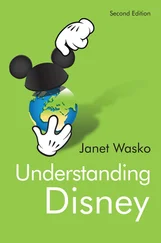During the nineteenth century, the landowner farmers felt constantly threatened by the possibility of cheap imports from abroad. Parliament passed laws to protect their high prices until at last the urban poor, supported by those who believed in free trade forced Parliament to allow cheap food into the country. The advantages for the city-dwellers were obvious, but in the countryside British agriculture suffered a great depression. (You can read about it in Thomas Hardy's Tess of the D'Urbervilles.) The new machines also encouraged depopulation of the countryside.
During the First World War, and especially during the Second World War, Britain became much more dependent on what it could supply itself. An island is difficult to invade but easy to blockade. From 1940 onwards, Britain was more intensively cultivated than any other country, and although we still needed supplies from the convoy ships, we managed to produce the major part of the food needed for forty-odd millions of people. Since then, with the extensive use of fertilisers, technology and improved 'breeds' of plants, our ability to feed ourselves has actually increased. We have cheap food and plenty of it.
There are prices to pay for this efficiency: hedges which were planted to improve the efficiency of the land three hundred years ago, have been torn up for greater areas of land use and greater profits, so vegetables are grown intensively, often under glass or polythene. As consequences the soil becomes less stable and the land is more liable to flooding, while fruit and vegetables are cultivated so intensively that they can be almost tasteless. Russians know how tasteless are many of the imported vegetables from Western Europe; many of you return to the tomatoes you grow on your dacha land with greater enthusiasm after you have eaten a Dutch greenhouse tomato. We have the same feeling but no dachas! (However, we have small gardens and many gardeners. You can read more about them in the section on leisure.)
England has much rich fertile land, suitable for growing crops - wheat, barley, oats, rapeseed (for oil) and vegetable crops. In the meadows beside rivers we grow rich grass, suitable for cattle and for fattening sheep. Pigs and chickens are bred all over the country; fortunately, the practice of 'factory farming' where pigs and chickens are reared in tiny cages in horrifying conditions is slowly disappearing. The British have seen too many films of what such conditions mean for the animals.
Scotland and Wales are both hilly or mountainous countries with thin soils and not very much flat land. The climate is colder and wetter. Farmers ~ on small farms - grow oats and potatoes and sometimes cultivate the berries that grow wild in Russia, but the main agriculture is raising animals on the moors and open hillsides. Cows can find enough food in the valleys while on the higher hillsides, sheep will graze, spending all year out in the open. Unlike Russians we have millions of sheep and think of them as an essential part of our countryside - picturesque and delicious to eat!
Another way in which Britain differs from Russia is in the small proportion of our land which is covered with trees: less than 9% in England, about 11% in Britain as a whole. We do not have your endless thousands of square kilometres of original forest. Most woodland in Britain is not original forest; it has been planted. Long ago forests covered the country, but ancient man began to clear the trees, and over the centuries more and more forests were chopped down. During the last two hundred years we have slowly replaced it.
When I was first taken into a Russian forest I was disconcerted, even disappointed. The English climate favours broad-leaved deciduous trees like oak, beech, ash, sycamore, chestnut and - yes - birch. As someone who had passed a happy childhood climbing all kinds of trees in our local woodlands, I was disappointed to find that a Russian forest offered me fir trees (cramped and prickly), birch trees (beautiful but fragile) and pines (impossible to climb). Subsequently I learnt of the pleasures of finding mushrooms and berries in your forests - but for the tree climber they do not offer much.
As our Russian friend looked round our English countryside he could see tidy fields, with hedges and fences in good repair, weed-free crops and blooming orchards, well-cared-for outbuildings and farm machinery, and an air of prosperity over all. He looked - and wanted to walk over a field of grassy pastureland to some woods on the crest of the hill.
'No,' we said. 'You can't.'
All the land he saw was private. It belonged to landowners and to their descendants, to individual farming families or to the 'agribusiness' commercial men' who farm thousands of hectares of our land simply for profit. Land is not 'common' in Britain except for small, anciently guarded areas. In cities we have public parks; in the countryside we have to look carefully for access to these fields and meadows.
However, we were able to reach the woods on the crest of the hill, by making a short detour and finding a public footpath. Our footpaths are the British answer to the ubiquity of private land: they are 'public rights of way' which means that anyone has (he right to walk along them. They criss-cross the private territory of the land-owners, and if the public keep to the path, they have every right to walk, sometimes even through people's private gardens. Across Britain there are about 240,000 kilometres of public footpaths. Some of these paths have always existed, but many were established in response to the demands of nineteenth century city-dwellers. Beyond the edges of the towns where the countryside began, people who came out in search of fresh air and green fields were barred from walking by all kinds of obstacles, most obviously dense hedges and heavily-barred gates with notices: 'Private: Keep Out'. In these circumstances, ordinary people began to fight back against the landowners. They claimed common rights to roam. They argued that paths should be a right, so that everyone could enjoy the pleasures of walking in the country. Eventually the campaigners were successful so that all over the country you can see green notices pointing across fields and assuring people that here is a 'Public Footpath'.
Since fields are small and boundaries are many, paths are always encountering obstacles: a hedge of tough twisted shrubs, a barbed wire fence, a drystone wall, for example. For this reason the walker has to deal with stiles. Stiles are a means of crossing these barriers if there are no gates to open. A stile can be a simple wooden ladder, or a wooden frame with a step. In stony country, ingenious footholds are built sideways into the walls, or small gaps are made in the wall, too narrow for a sheep (or a fat person) to pass through.
Apart from the footpaths (and bridleways along which people can ride horses and pedal cycles), we have a few large National Parks for open-air recreation. The land is often privately owned and privately farmed, but the public have free access to the most beautiful areas. Thousands of volunteers work with the park wardens to ensure that these wild natural areas are free of rubbish, glass, litter and that the natural plant-life is protected. One big difference between Britain and Russia is that when we go out into the open countryside and enjoy the beauties of nature, we do not have to wade around in a mess of broken glass, dirty plastic, tin cans and other kinds of filth. Most walkers and campers clear up their sites; those who behave badly can be prosecuted; but the difficult work is done by paid people and by these volunteers.
The British have one other valuable source of exercise and pleasure - the shores of our island which were described at the beginning of this chapter. Most of our beaches are public, unlike those in America or much of Europe. Our coastline is thousands of miles long, with wonderful opportunities not only for sunbathing and playing and swimming, but also for solitary walking. Where the coast is rocky we have established cliff-top walks with views across miles of sea to the furthest horizons. Sixty million people on a small island need space in which to enjoy their 'precious stone set in a silver sea'.
Читать дальше












